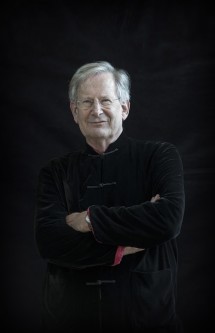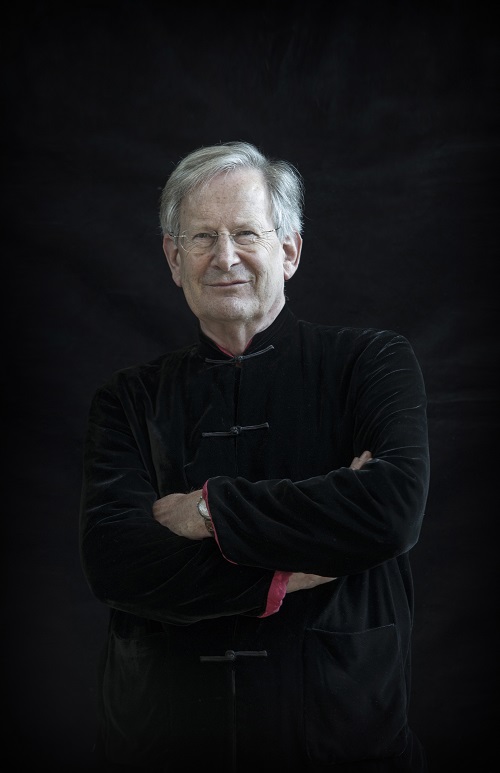
 Germany Dresdner Musikfestspiele 2018 [1] – J.S. Bach: English Baroque Soloists, Monteverdi Choir / Sir John Eliot Gardiner (conductor), Frauenkirche, Dresden, Germany 11.5.2018. (MC)
Germany Dresdner Musikfestspiele 2018 [1] – J.S. Bach: English Baroque Soloists, Monteverdi Choir / Sir John Eliot Gardiner (conductor), Frauenkirche, Dresden, Germany 11.5.2018. (MC)

Bach Cantatas – Weinen, Klagen, Sorgen, Zagen; Wachet! betet! betet! wachet!; Jesu, der du meine Seele, BWV 78; Wachet auf, ruft uns die Stimme, BWV 140
Apart from J.S. Bach’s home Lutheran church Thomaskirche in Leipzig I can’t imagine a more suitable venue to play Bach cantatas than Dresden’s glorious Frauenkirche. In 1736 Bach had been invited to the Frauenkirche to give the inaugural recital on the recently dedicated Gottfried Silbermann organ. Reconstructed after destruction by bombing in World War II the Frauenkirche has become a symbol of peace and reconciliation between warring countries. The performers, Sir John Eliot Gardiner, a renowned J.S. Bach specialist, English Baroque Soloists and Monteverdi Choir must have been surely both enthralled and buoyed by the spectacular setting of the Frauenkirche, its ornate internal decoration and history as they produced a performance that will linger long in the memory.
In the Frauenkirche with its beautiful interior dome construction decorated in white and gold the performances of four Bach cantatas were quite outstanding being consistently fresh and invigorating together with an elevated level of accomplishment. Sir John generally favoured brisk speeds but never once did I feel they were too fast and his familiarity with the scope of the instruments on this very hot Spring evening ensured he chose not to exaggerate the dynamic. Playing with commitment and enthusiasm, notable was the glowing range of orchestral colours that English Baroque Soloists produced on its period instruments. The acoustic favoured the unified high string sound which produced a lovely glow although the pair of cellos were less audible from my seat. Surprisingly it was some way into the concert before I was able to detect the sound of the harpsichord that was tucked away adjacent to the organ. In displays of excellence often breathtaking were the contributions from principal oboist, trumpet, flute, cello and leader.
Convincingly the choral singing from Monteverdi Choir and its soloists communicated an uplifting, spiritual quality of an elevated level rarely encountered. From the evening’s programme there are four highlights that have lodged firm in the memory and I have singled out for special praise.
Displaying Bach’s writing in a near operatic manner the duet aria for soprano and alto Wir eilen mit schwachen, doch emsigen Schritten (We hasten with weak, yet eager steps) from Jesu, der du meine Seele (Jesus, by whom my soul), BWV 78 was exquisitely rendered with the women’s glorious voices blending together dramatically. Also, from the cantata BWV 78 the exceptional tenor excelled in his solo Das Blut, so meine Schuld durchstreicht (Thy sacrifice has cleansed the stain) his voice ringing out so attractively through the space, with a convincing reverence.
From Wachet auf, ruft uns die Stimme (Awake, calls the voice to us), BWV 140 known as ‘Sleepers awake’ in the chorale Zion hört die Wächter singen (Zion hears the watchmen singing) the young and unified voices of the Monteverdi Choir, some nineteen strong, made a real impact communicating a moving degree of pious expression. From the same cantata BWV 140 outstanding too was the duet for soprano and bass Mein Freund ist mein! (My Friend is mine!) sung to oboe accompaniment. In effect a ‘love duet’ between the soul (soprano) and Jesus (bass) displaying their contrasting voices to a joyous yet dramatic effect, definitely creating significant chemistry.
Initially the predominantly German audience in this Saxon capital city seemed stunned by the excellence of the performance and gave a slow burning yet lengthy ovation that brought Sir John back to the stage several times. But how could playing another short work as an encore have worked after the level of spirituality experienced? I am certainly glad he didn’t attempt one.
Michael Cookson
